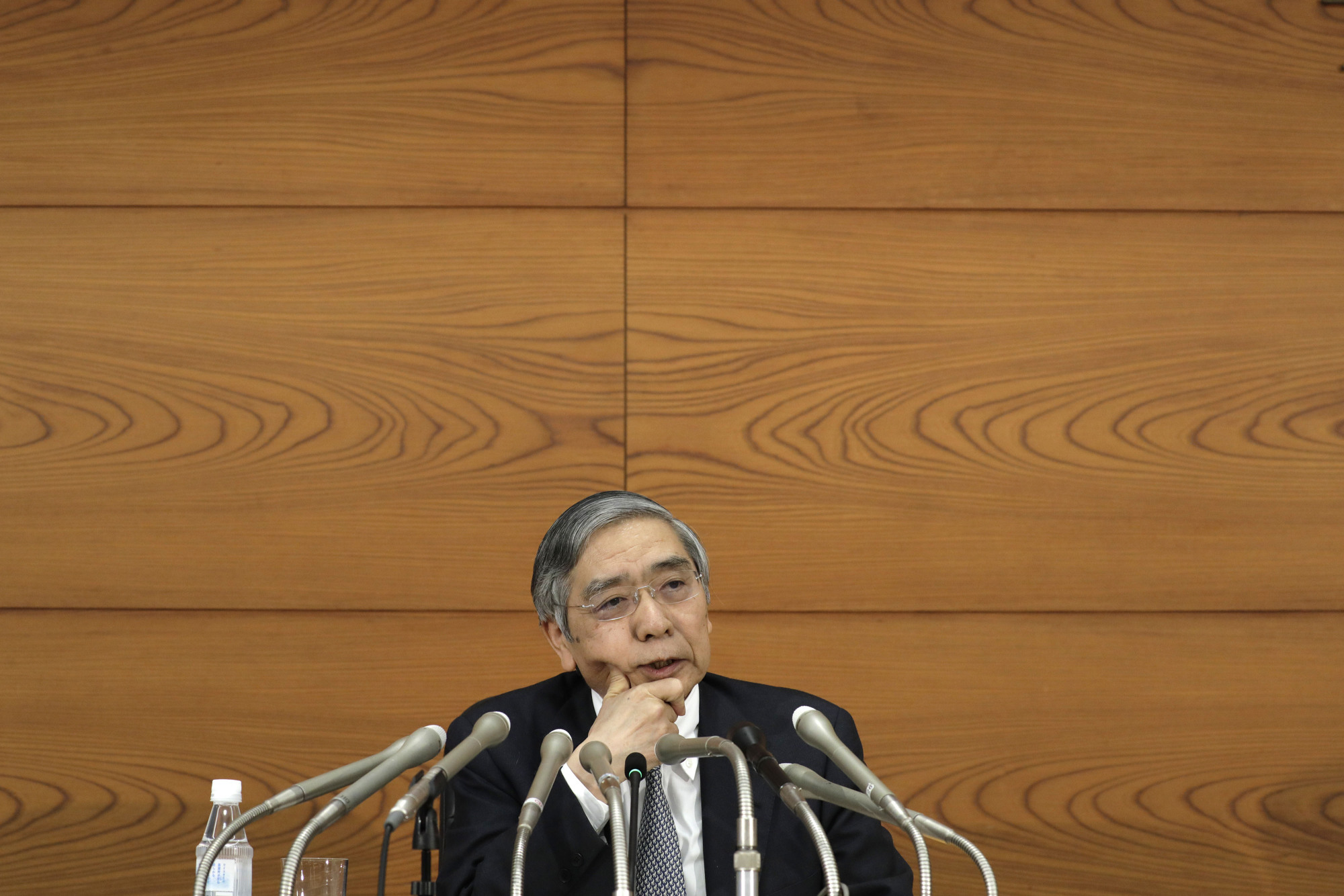The Bank of Japan closed a tumultuous year for monetary policy with an upgrade to its assessment of the economy while keeping its yield-curve and asset-purchase programs unchanged.
After the board's first policy meeting since the election of Donald Trump, the BOJ forecast a moderate recovery trend to continue amid a pickup in exports, better business sentiment and resilience in private consumption. However, inflation expectations remain weak and risks to the outlook abound, ranging from developments in the Chinese and U.S. economies to Brexit and geopolitical uncertainties.
Most analysts had already adopted the view that the BOJ would stand pat in coming months with its targets for short- and long-term interest rates, even before Trump's election victory sent the yen tumbling, easing any pressure for additional action to stoke inflation. After the shock of negative rates in January, a comprehensive policy review midyear and new direction since September, a majority of economists surveyed by Bloomberg don't expect any additional easing before BOJ Gov. Haruhiko Kuroda steps down in 2018.



















With your current subscription plan you can comment on stories. However, before writing your first comment, please create a display name in the Profile section of your subscriber account page.